Despite growing risk of refugee crisis, humanitarian disaster in Syria, UN Security Council, US not taking action
This is the largest exodus of people in Syria's nine-year long war.
The humanitarian crisis in Syria's Idlib province is facing a massive shortfall of humanitarian aid, according to the United Nations, as President Bashar al-Assad's forces -- backed by Russian war planes -- moves further into the last rebel stronghold.
It's an unprecedented situation, even after the country's nine years of war. Nearly one million people, including over half a million children, have now been displaced since Assad's offensive started in December. He and his allied forces have targeted schools and hospitals -- just this week -- with an attack Thursday on Turkish forces who are backing the Syrian opposition, threatening to erupt into greater violence.
But in the face of that conflagration, the international community again seems frozen with inaction. A U.N. Security Council meeting Thursday saw world leaders condemn the offensive, but announce no new action and the top U.S. diplomat for the Middle East could not share one urgent step the Trump administration is considering to respond to the crisis.
"It's already a catastrophe, but we could see a new humanitarian crisis the scale of which we cannot imagine," Sahar Atrache, a senior advocate at Refugees International, told ABC News from the Turkish-Syrian border.
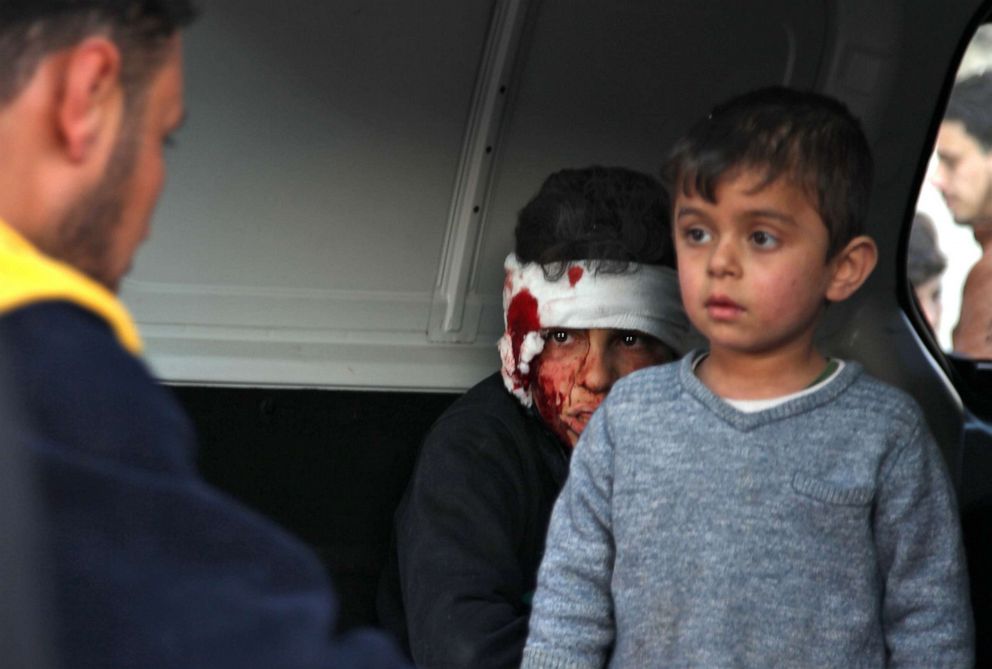
The fighting in Idlib sparked again in December when Assad's forces, boosted by Russian air power and Iranian-commanded militias like Hezbollah, made a renewed push into the region in a bid to win the war militarily, nine years after pro-democracy protests were met with Assad's brutal crackdown, igniting a civil war. Turkey and rebel groups it backs, dominated by Islamist extremists, have fought back the offensive, risking a wider conflict.
Since Dec. 1, over 948,000 people, including more than 560,000 children, have fled Assad's forces in the largest exodus of the entire bloody war, according to the U.N.'s Office for the Coordination of Humanitarian Affairs. In an area where approximately 300,000 residents once resided, there are now over three million people, leaving tens of thousands to sleep outside or in the rubble of bombed-out buildings amid freezing winter cold.
At least a dozen people have died from that cold, with aid groups reporting that they are out of tents or land to pitch them on for the families pouring into the region.
"People are sleeping everywhere," Atrache said in an interview Thursday. "The challenge is with funding, but it's greater than that -- confining three million people in such a small space that's not suitable to host all these people. The sewage, the water, the space for tents, the hospitals -- everything is over capacity."
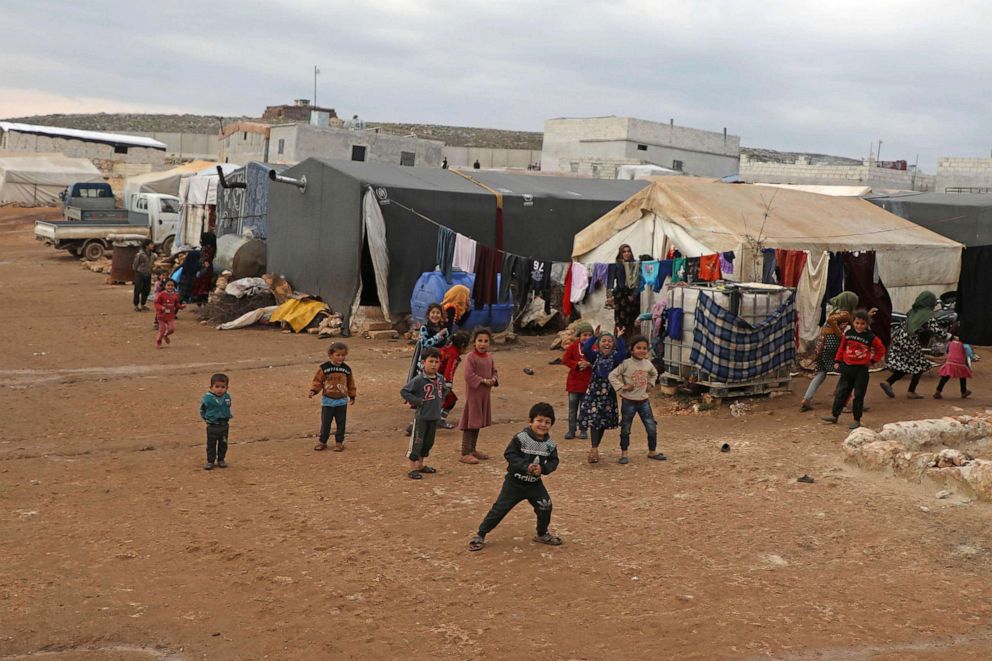
The U.N. humanitarian office for Syria said this week it still needs $371 million to deal with the growing humanitarian crisis, with only $129 million of its requested $500 million for a revised plan.
But in the face of that need, the top U.S. diplomat for the Middle East implied there was no new U.S. aid coming, nor any major diplomatic effort to halt Assad's offensive or the growing violence between Turkey and its Syrian allies and Assad, Russia and Iran. Instead, Assistant Secretary of State for Near Eastern Affairs David Schenker referred questions to his deputy Joel Rayburn, who was in Saudi Arabia "to discuss the difficult situation in Syria," a State Department spokesperson later told ABC News.
"It is atrocious, what is going on there. This is intentional -- and atrocities are being perpetrated -- and it's an outrage," Schenker added, in a subdued tone, during a briefing Wednesday.
The department spokesperson later told ABC News that the U.S. is providing humanitarian assistance to those in need in northwest Syria, distributing food, "winterization support," and "relief items;" providing shelter and water, sanitation and hygiene assistance; and supporting hospitals and mobile clinics. But they would not specify how much money the administration had spent or whether it had increased its funding since the offensive began in December and the humanitarian need became more severe.
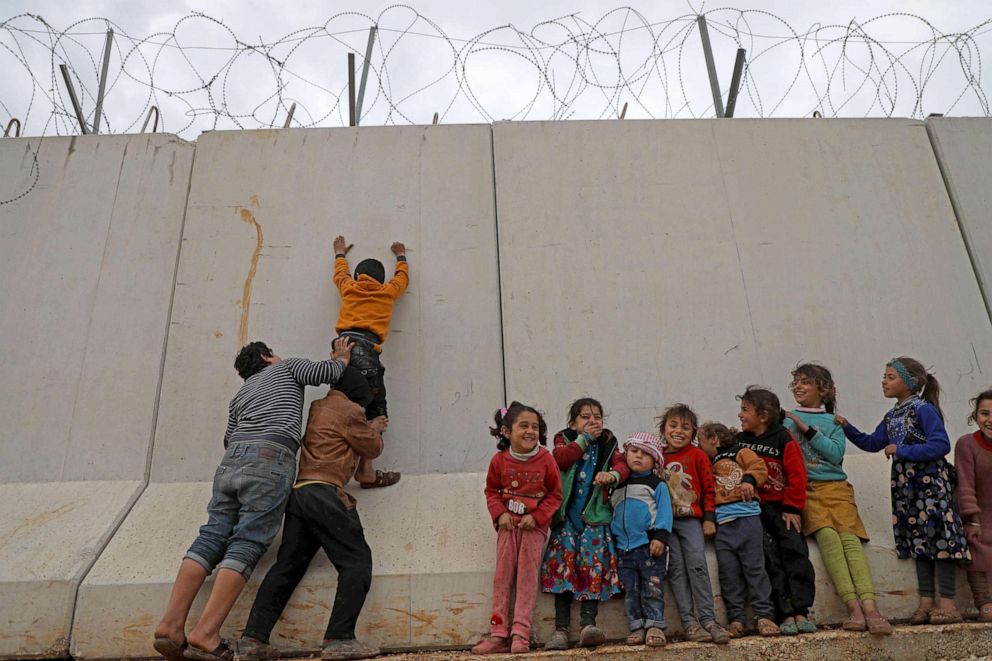
Displaced Syrians have packed into Idlib, fearing regime rule, but unable to cross Turkey's hardened border, with Turkish security forces firing at those would-be refugees. That could change as the pressure builds on Turkey, threatening a massive refugee flow into Europe beyond the scope of the migrant crisis that peaked in 2015.
Whatever aid the U.S. and other donor countries can provide has not met the overwhelming need, especially as the regime and Russia target medical facilities, bombing Idlib at least 95 times since last April, according to the Syrian American Medical Society. Just this Tuesday, they hit 10 schools across Idlib's capital, killing at least 20 people, including 10 children, according to SAMS.
A surgeon at Idlib surgical hospital described those attacks with horror.
"It was a hysterical situation in the city. Along with the sound of bombings and the sound of sirens, people had panic attacks. It was a difficult, bloody day," he said, according to Doctors Without Borders.
The U.N., U.S., other countries and aid organizations have all called for a ceasefire. U.S. Ambassador to the United Nations Kelly Craft told the Security Council Thursday that a "a durable and verifiable ceasefire" was the only way to really address the humanitarian need.
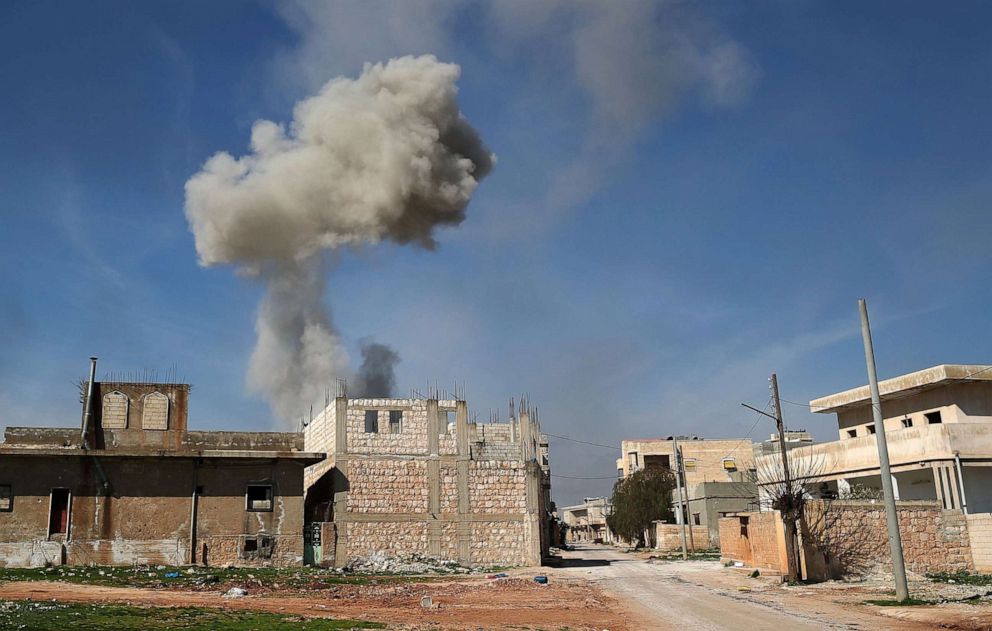
"This Council can act, which means that each country represented here has a choice. You can feed the hungry, shelter the weary and heal the sick, or you can sit back and watch them suffer and die, and be forever remembered for doing so," she added.
But the Security Council has been paralyzed throughout the war to deadly effect because of Moscow's veto power in support of Assad, sinking at least 14 draft resolutions over the years, according to the Associated Press.
The U.S. seems resigned to that obstruction, instead seeming to hope that its NATO ally Turkey can halt the offensive through force. Backing the rebel forces for years now, Turkey has had observation posts and troops stationed throughout Idlib as part of a 2018 ceasefire deal with Russia that has never really held. As the regime and its allies moved further into Idlib, Turkey, has stepped up its support for the opposition forces, which are dominated by Islamist extremist groups, some with ties to al-Qaida.
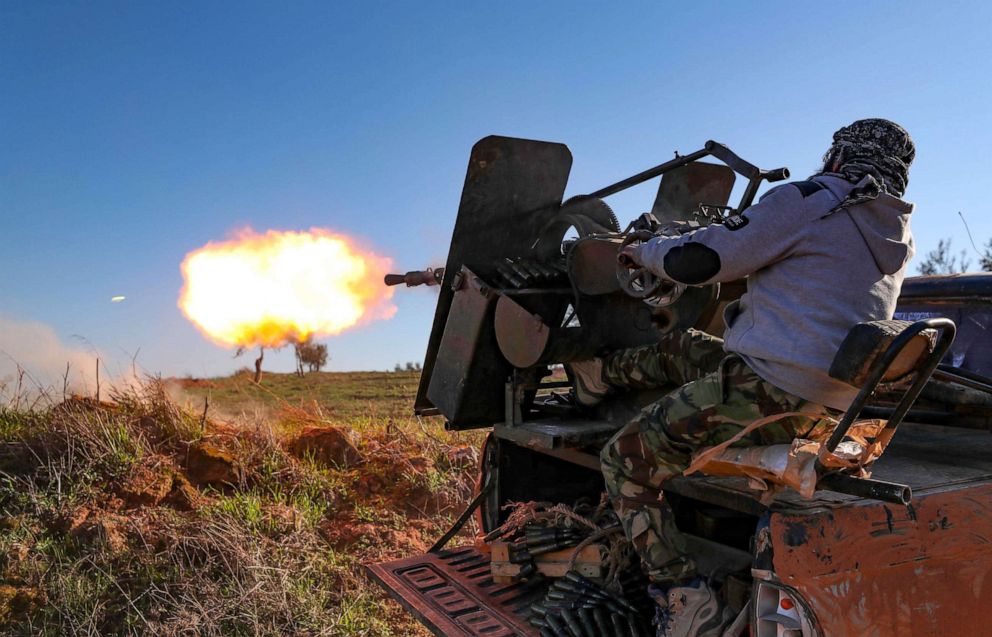
Despite those terror ties, Turkish President Recep Tayyip Erdogan has asked Washington for military assistance, including Patriot missile systems. Schenker declined to comment on that request, but U.S. special envoy James Jeffrey has traveled to Turkey to discuss how the U.S. can assist. Defense Secretary Mark Esper spoke to his Turkish counterpart again Thursday and discussed "ways the United States can work together with Turkey and the international community," a spokesperson said.
Sen. Lindsey Graham, R-S.C., called to take that step even further. President Donald Trump's ally and a longtime hawk, said Thursday that the U.S. should help establish a no-fly zone over the area, appealing directly to Trump "to stop the slaughter and get ahead of a humanitarian crisis."
But Esper made clear Wednesday that the administration hasn't had any "discussion about reengaging in the civil war," saying the hundreds of U.S. troops that remain hundreds of miles away in northeast Syria are there solely to fight the remnants of the Islamic State.




